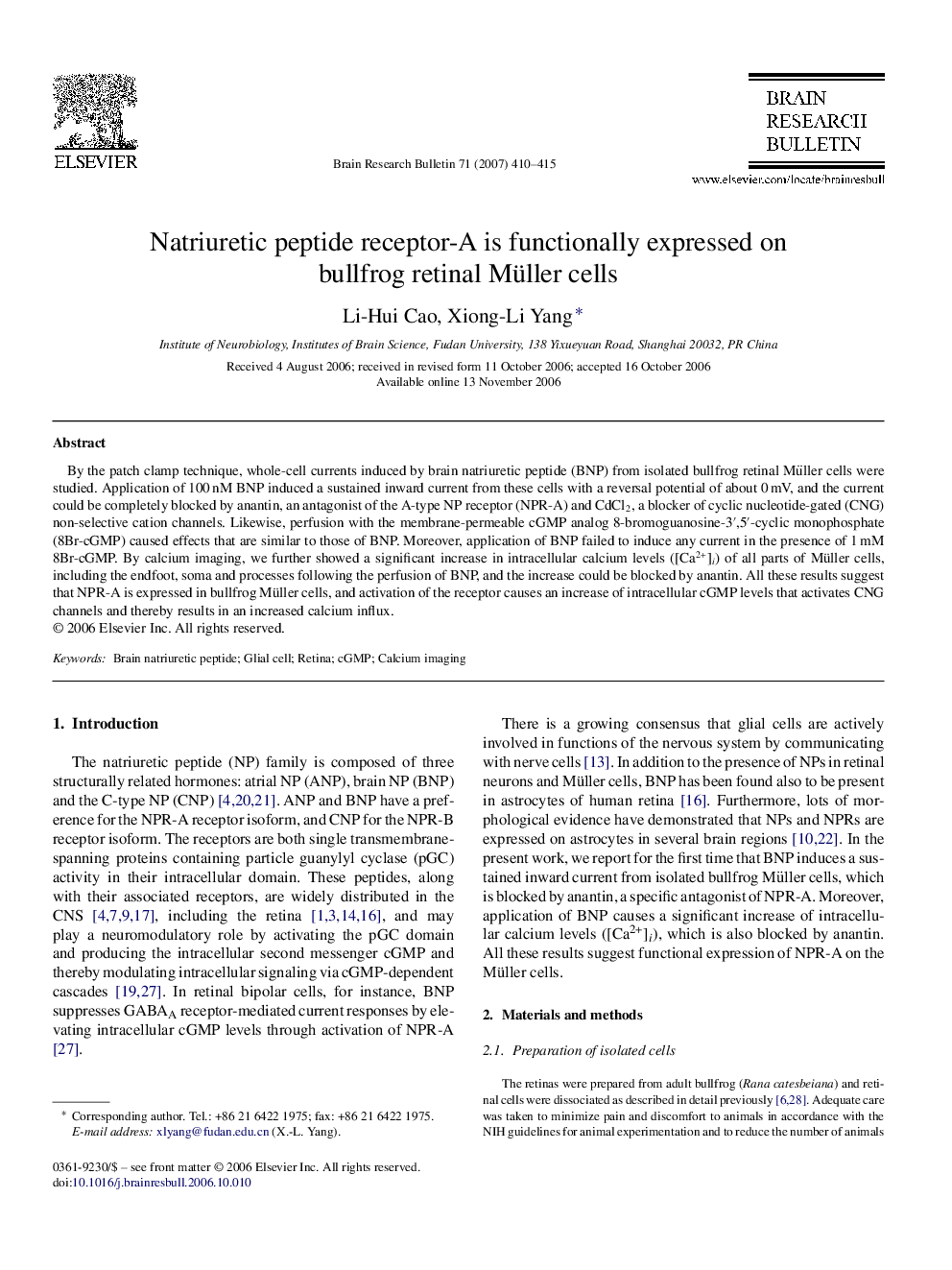| Article ID | Journal | Published Year | Pages | File Type |
|---|---|---|---|---|
| 4320052 | Brain Research Bulletin | 2007 | 6 Pages |
Abstract
By the patch clamp technique, whole-cell currents induced by brain natriuretic peptide (BNP) from isolated bullfrog retinal Müller cells were studied. Application of 100Â nM BNP induced a sustained inward current from these cells with a reversal potential of about 0Â mV, and the current could be completely blocked by anantin, an antagonist of the A-type NP receptor (NPR-A) and CdCl2, a blocker of cyclic nucleotide-gated (CNG) non-selective cation channels. Likewise, perfusion with the membrane-permeable cGMP analog 8-bromoguanosine-3â²,5â²-cyclic monophosphate (8Br-cGMP) caused effects that are similar to those of BNP. Moreover, application of BNP failed to induce any current in the presence of 1Â mM 8Br-cGMP. By calcium imaging, we further showed a significant increase in intracellular calcium levels ([Ca2+]i) of all parts of Müller cells, including the endfoot, soma and processes following the perfusion of BNP, and the increase could be blocked by anantin. All these results suggest that NPR-A is expressed in bullfrog Müller cells, and activation of the receptor causes an increase of intracellular cGMP levels that activates CNG channels and thereby results in an increased calcium influx.
Related Topics
Life Sciences
Neuroscience
Cellular and Molecular Neuroscience
Authors
Li-Hui Cao, Xiong-Li Yang,
